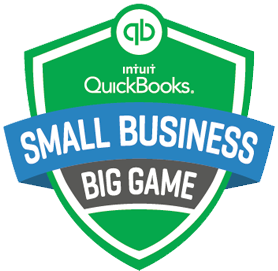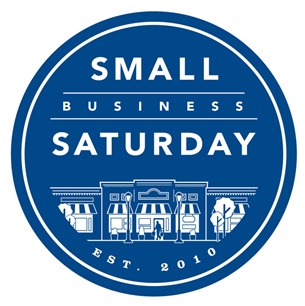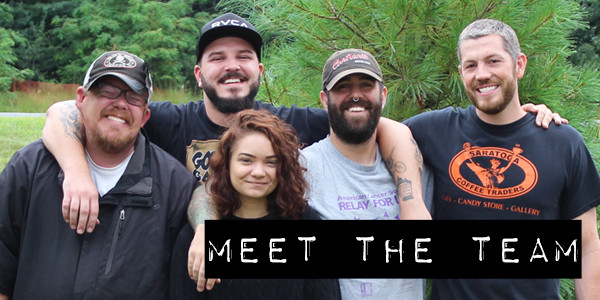All week long, we’re looking at the Super Bowl from a marketing and advertising perspective (we’ll tackle programming tomorrow). Yesterday, we focused on the challenge of choosing just the right soundtrack for these multi-million dollar campaigns that everyone enjoys watching, analyzing, and rating. You can read it here.
Today, we’re shifting our focus away from big national advertisers like Colgate, Budweiser, Coke, Taco Bell, and Doritos – all of whom are spending millions to have presence in the Big Game.
Instead, we’re highlighting Death Wish Coffee Company whose spot will run during the third quarter of Sunday’s contest between the Panthers and Broncos. No matter the outcome, this little business enterprise fueled on overly caffeinated coffee will undoubtedly come away a winner.
What – you’ve never heard of Death Wish? Well, soon you will. You can see their Super Bowl spot here:
So how did this happen, because Death Wish Coffee Company is not a major brand, it’s not a household name, and they are not a major league player on social media?
 This upstart little coffee business may be unknown to you now, but they’ll earn plenty of buzz this weekend and beyond, thanks to “Small Business Big Game,” a contest sponsored by Intuit (the company that makes QuickBooks and TurboTax).
This upstart little coffee business may be unknown to you now, but they’ll earn plenty of buzz this weekend and beyond, thanks to “Small Business Big Game,” a contest sponsored by Intuit (the company that makes QuickBooks and TurboTax).
The prize is one that every small business in America would covet – a free spot in Super Bowl 50. For Death Wish (positioned as “the world’s strongest coffee”), their 11 employees will now be moving over to make room for new hires. Their slogan – “Fiercely Caffeinated” might become a memorable catch phrase (it sure is for me!).
For Intuit, their “Small Business Big Game” concept is a clever and effective way to shine the light on small businesses, their creativity, and their resourcefulness. To win the honor, Death Wish beat out 15,000 other entries.
This campaign is even more dramatic and attention-getting than American Express’ effort, “Small Business Saturday,” which started back in 2010. Just a few years later, and it netted an estimated $14 billion in revenue this past November. Again, this is another indication of the strength and power of local companies that merge innovation, imagination, and hard work to build their brands.
past November. Again, this is another indication of the strength and power of local companies that merge innovation, imagination, and hard work to build their brands.
Radio can learn a lot from these exercises in supporting small businesses, because by and large, that’s what most radio enterprises are. Aside from the handful of big behemoth companies at the top of the radio heap, it’s the small radio businesses that typify the industry. Hundreds and hundreds of radio companies are, in fact, small businesses.
And our experience with state broadcaster associations in places like Oklahoma, Wisconsin, Kentucky, North Carolina, and of course, Michigan, is an ongoing reminder that it’s the smaller market stations that are the lifeblood of the radio industry. They show up, they know everyone, they join or head up organizations like Rotary, and they become part of the fabric of their communities.
Radio at its best is a “windshield medium,” meaning that it is most effective when its ads sync up with listeners on the move in local markets like Cedar Rapids, Savannah, Fresno, and Burlington, driving from Point A to Point B. Given the “big box” store phenomenon that has systematically wiped out thousands of small businesses these past few decades, radio is in a position to support these small, hometown enterprises while helping its own revenue generating efforts.
The radio industry can also learn from the impact that a small company like Death Wish Coffee Company can have, not just this Sunday on the Super Bowl, but in the way they cleverly use the digital tool kit supplied by companies like Amazon, making it possible for a small group of employees to make a lot of noise and become a well-known brand throughout the world.
And yet they can still establish a personal feel that you just can’t get from a Starbucks or a Dunkin’ Donuts. The Death Wish story is more evidence that as the Internet has spawned massive tech companies like Apple and Google, it has also enabled a guy named Mike Brown (far right) and his small team in Round Lake, NY, to make waves that will reverberate across the globe on Sunday.
A small radio company can have powerful impact in its home markets. A small market radio station can provide more resonance to its hometown audience than Pandora, Spotify, or YouTube. And local radio can help neighborhood businesses start up, get established, and grow.
It’s not lost on me that the Death Wish employee roster is the size of the number of players that will be on the field on each side of the ball in Super Bowl 50. Eleven people can move a football down a field, just as small groups of dedicated, inspired, and focused individuals can work together to build lasting, meaningful businesses that matter.
From small things, big things one day come.
Thanks to Rob Basile for bringing the Death Wish Coffee Company story to my attention.
- What To Do If Your Radio Station Goes Through A Midlife Crisis - April 25, 2025
- A 2020 Lesson?It Could All Be Gone In A Flash - April 24, 2025
- How AI Can Give Radio Personalities More…PERSONALITY - April 23, 2025





GRRREEEEAAAATT!!
Thanks!
Wonderful analogy! Reminder to get out from behind Selector, serve the community and make it meaningful
Thanks, and great advice!
Great one today! I agree, you can be small, but mighty! Small local broadcast companies are making an impact in their communities each and every day. It’s the reason I get up and go to the station everyday. I love helping businesses succeed and our listeners in need! Thanks for the reminder!
Julie, I thought about you when we put this post together. Glad it resonated, and thanks for reading our blog.